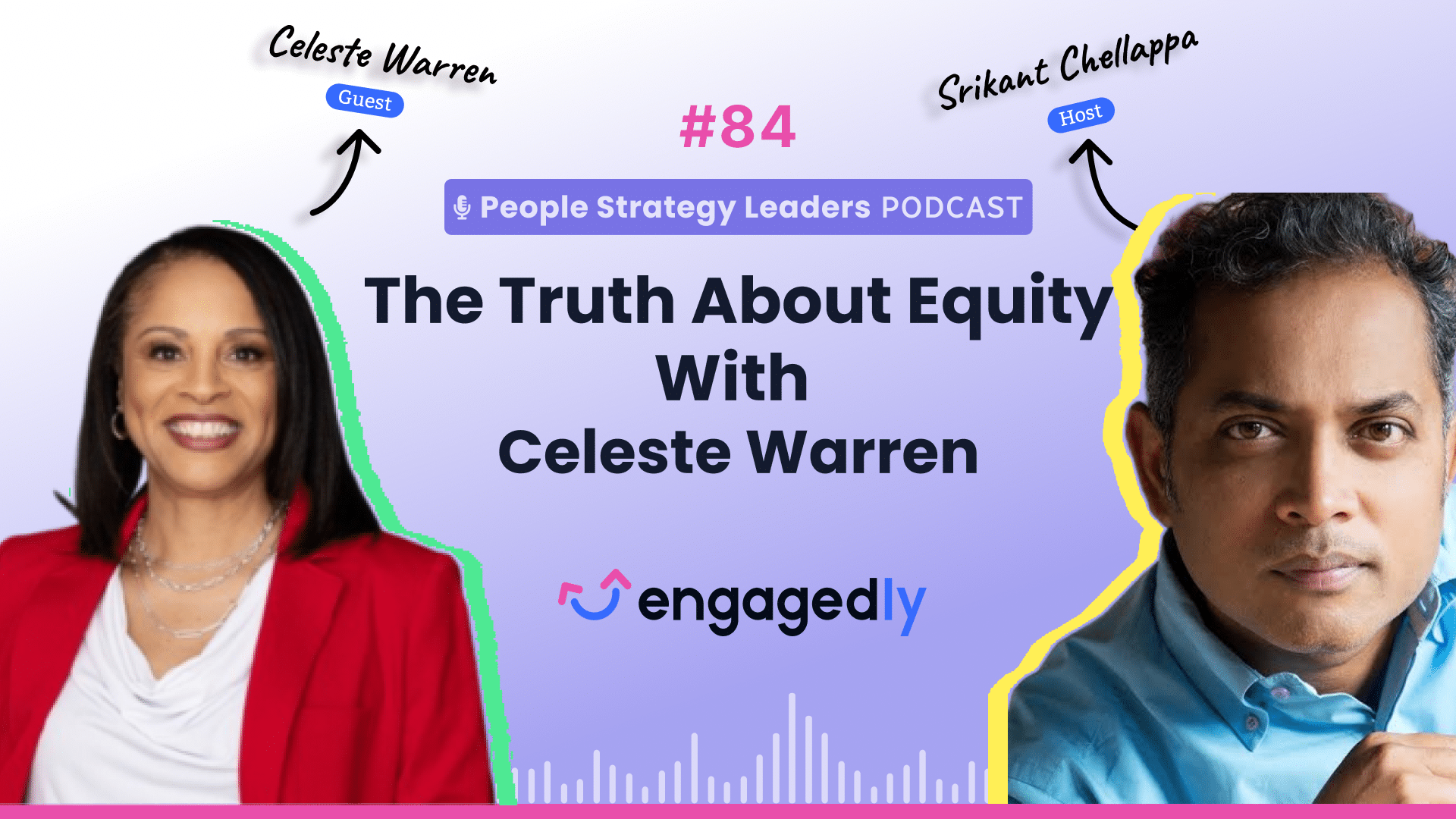Equity Isn’t a Dirty Word: A Conversation with Celeste Warren on Inclusive Leadership
In a time when conversations around DEI (Diversity, Equity, and Inclusion) are being challenged, reframed, and in some cases, rolled back, one voice stands firm in its clarity and conviction—Celeste Warren, former Chief Diversity and Inclusion Officer at Merck and author of The Truth About Equity.
In a recent episode of the People Strategy Leaders Podcast, Celeste joined host Sri Chellappa to talk candidly about what equity really means in the workplace, why it’s misunderstood, and how leaders can move forward even amidst pushback.
Equity vs. Equality: A Crucial Distinction
“Equity understands and realizes that everyone didn’t start in the same place,” Celeste explains. Unlike equality, which gives everyone the same resources regardless of context, equity focuses on providing what each person actually needs to reach the same destination.
This isn’t just a feel-good concept—it’s a leadership imperative. Celeste emphasizes that understanding people’s unique circumstances, skills, and starting points is essential for building high-performing teams and inclusive organizations.
The DEI Backlash: Why It’s Happening
Celeste doesn’t shy away from addressing the backlash. From political polarization to misinformation, she notes that the DEI movement has been unfairly politicized and misrepresented. Some perceive equity efforts as preferential treatment—especially those who’ve always had the privilege of “seeing over the fence.”
But as Celeste points out, that perspective often ignores the “fence” itself: long-standing systemic barriers like racism, sexism, and classism. The real challenge, she says, is getting everyone to understand that equity is not about taking something away—it’s about creating a level playing field.
The Three-Rock Analogy: Making Equity Tangible
One of the most powerful metaphors Celeste uses is the “three-rock” illustration:
Imagine three people trying to look over a fence. One has a clear view, another can barely see, and the third sees nothing at all. Giving them each one rock doesn’t help—but giving each the number of rocks they need to see over the fence does.
These “rocks” represent programs like ERGs, leadership development for underrepresented groups, and targeted hiring strategies. “It’s not about giving more to some,” Celeste says, “it’s about giving what’s needed to succeed.”
Equity in Action: Lessons from Merck and Beyond
Celeste also shared her experience driving DEI on a global scale. At Merck and Kraft Foods, she often encountered the notion that DEI was a “U.S. issue.” But as she reminded teams across the world: every country has its own haves and have-nots. Whether it’s caste in India or class divisions in Europe, systemic barriers exist everywhere—and so must solutions.
Her global DEI strategy focused on building a universal umbrella with locally relevant practices, ensuring inclusivity wasn’t just a checkbox but part of the organization’s DNA.
From Disability Tech to Mainstream Innovation
Equity doesn’t only benefit marginalized communities—it drives innovation for everyone. Celeste pointed to the rise of voice assistants like Siri and Alexa, which originated from accessibility efforts for the visually impaired. “What starts as equity for one group,” she says, “often becomes a universal breakthrough.”
The Book and the Mission
Celeste’s new book, The Truth About Equity: What It Really Is, What It Isn’t, and Why Everyone Wins When We Get It Right, aims to reset the narrative. It’s not just for DEI practitioners—it’s for managers, leaders, and curious professionals who want to understand what equity really looks like in practice.
Key Takeaways for Leaders
Leadership starts with understanding. Meet people where they are to move them forward.
Equity is not equality. Tailoring support is how you reach true performance and inclusion.
Pushback is part of the process. Don’t retreat—educate and stay focused.
Equity benefits everyone. What helps one group often raises the bar for all.

